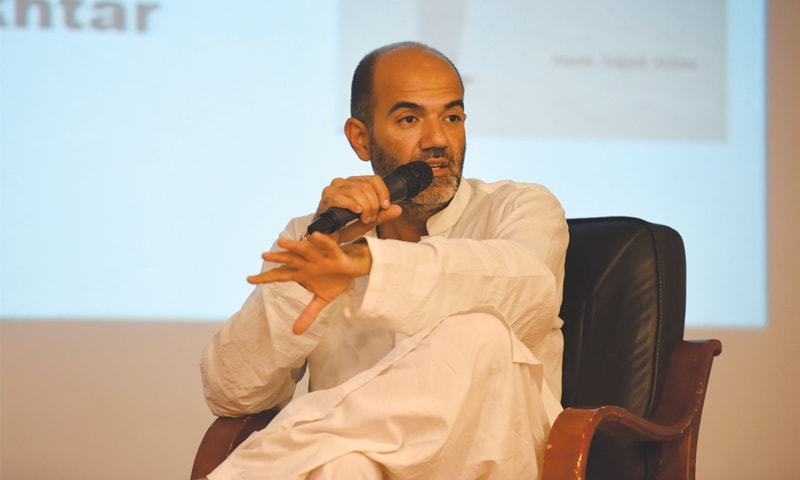KARACHI: How had the structure of power within the country changed over the last few decades, and what were its trickle-down effects on society at large were vividly discussed by Prof Asim Sajjad Akhtar at the launch of his book titled The Politics of Common Sense: State, Society and Culture in Pakistan at Szabist on Friday.
Akhtar, prominent leader of the Awami Workers Party, and professor at the Quaid-i-Azam University, explained how before the 1970s-80s the perspective and flavour of politics in the country, its purpose and the general perception towards it was very different. That all changed with the Zia regime.
In conversation with author Akbar Zaidi, he detailed the political environment, the way politics was practiced, and how it changed during Zia’s regime.
“We generally know a lot about what happened during Zia’s regime of how he forced religion onto society. But we don’t ponder much on what he did to politics in the country,” said Akhtar.
“In some sense this book tries to chart the revolutionary politics of around 15-20 years prior to this era that aimed to transform society, where every person was equal and where every person was allowed to spend a free life with better standards than ever before. Trade unions, student politics, labour movements were the norm in such a political landscape. Zia, however, co-opted those emerging classes of society that were previously inclined towards a political structure which was about changing the system and striving for an equal society.”
He elaborated that the politics which had once been about growing together to change society was transformed by Zia into the politics of common sense.
Akhtar explained how they were made to believe that it was just common sense to not bother with politics or change, to not work together with other citizens and identify problems in society and change them. “It was in fact about only to think about your own self, to exist within the current system, search for a patron who enjoys some clout, and survive.”
The concept to vote for a programme of a political party that would benefit society at large was no longer considered, he said. “Votes now were given for personal benefit and generations ever since have been raised on this belief that politics is bad; they are told put down your head and only think about yourself, something like survival of the fittest.”
As a result a crumbling wall, he said, will remain upright as those individuals who have the power to bring about change from within are too engulfed in just surviving. It has become common sense for them to worry about only themselves and not society at large, he elaborated.
Zaidi called the book a good historical documentation and analysis of what had happened politically in the country but questioned Akhtar as to why the book lacked a ‘what is to be done’ chapter. “Looking at the situation today, what do you think should be the strategy and what should be done?”
“Going forward I feel there will be a bifurcated political sphere where on one hand there will be the development narrative and on the other will be stories of dispossession to feed the middle-class consumption. This is today’s class struggle. It is important for us to see that and to join the other which is extremely hard.”
Another thing Akhtar highlighted was the lack of a united ‘us’. “The nation-building project has failed miserably and there is nothing that joins different segments of society together. The role of the Left today is to bring together all those who want change and want to resist the system which requires them to feed off the crumbs.”
Akhtar however, expressed some optimism about the future of Pakistan, with a large chunk of the population comprising the youth. “There are many movements within the country that are going against the system and are making a mark,” he said.
“And though there may not be many revolutionary voices present at the moment, there is hope that the other dormant perspective of politics to think for society instead of your own self will resurface.”
Published in Dawn, May 6th, 2018















































Dear visitor, the comments section is undergoing an overhaul and will return soon.